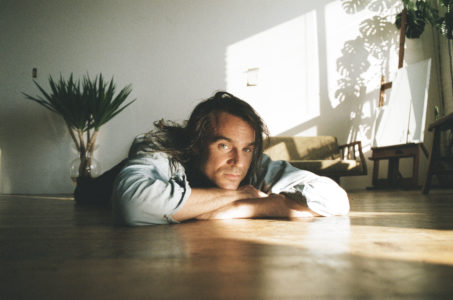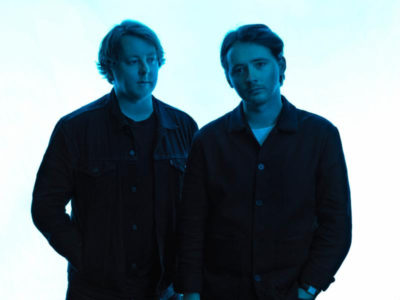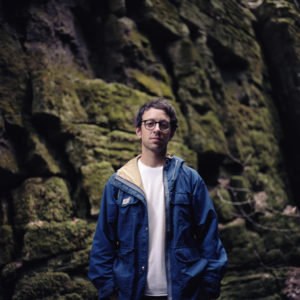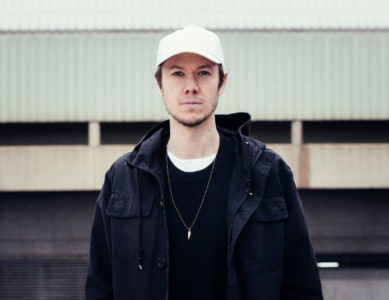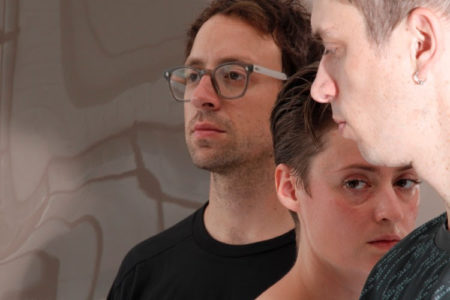Our interview with Carmen Elle from Diana

NORTHERN TRANSMISSIONS INTERVIEW WITH CARMEN ELLE OF DIANA
The first time I call DIANA’s Carmen Elle, she asks me to call back. She’s in line waiting to purchase groceries. The coincidence of my timing, broaching the quotidian and mundane, sets the tone of our interview. Extending beyond DIANA’s atmospheric synthpop aesthetic and the release of their new album, Familiar Touch, we find ourselves discussing gender politics, totems, and DIANA’s Toronto community.
DIANA consists of Elle, Joseph Shabason and Kieran Adams.
Northern Transmissions: Familiar Touch sounds nostalgic for the ‘80s, but it is also quite contemporary, and even futuristic. The lyrics on Familiar Touch are down-to-earth about romance, setting boundaries and realistic expectations. Did you write this album conscious of wanting to paint a more realistic vision of love than the ‘80s musicians that have inspired your sound?
Carmen Elle: I think with regards to the inspiration we draw from ‘80s songs, a lot of it draws down to the aesthetic choices we make for the sound … We’re a band with a lot of musical ideas. We like having the time and ability to express them as best we can, which always comes out sounding super ‘80s, which is funny.
And then with regards to lyrical stuff, for us, we weren’t writing for [love]. I read something once where the more specific of an idea you have, the more universal an impact or relate-ability that it has … [DIANA] was writing a lot about the things that were speaking to us on very personal levels, which maybe happened to become a larger theme or energy. For me, when I sing these songs, I think a lot about finding peace with yourself and compassion with yourself, and that’s something that definitely needs to happen to keep moving forward. A lot of these songs for me are grappling with that, in a way.
NT: I read that DIANA conceived the album in a rural a-frame cabin. This is a common narrative for Canadian musicians, the seclusion, escape and communion with nature. Do you hear the influence of the natural environment in Familiar Touch, or would you say that the cabin was just an inanimate place to collaborate on the album?
CE: I think that the cabin provided emotional and literal space for us to do the work of writing the album. The first album was actually written in a cottage as well, so that’s definitely a cohesive theme within the band. It’s something that you can sense in both albums, but with [Familiar Touch] it was definitely good for a lot of the work we did, to have the space and time. I personally hated it up there and didn’t want to go at all, and [Joseph and Kieran] made me. I get it, I just never understand why we need to renounce our lives and our foods and our comforts and our friends to, you know, go do this thing that we can do anywhere.
NT: My next question is about patriarchy, which I realize can be a sensitive topic. We live in a patriarchal society. As a woman, I find myself in situations of collaboration where I have difficulty asserting my decisions, and a lot of the time I believe it is because of my gender. I wonder, does subtle patriarchy ever affect you, or affect your band dynamics?
CE: I struggle with it, it’s a real thing. An example is manspreading. This guy was sitting on the subway and had his legs spread super wide. I wanted to sit down beside him, so I kind of folded myself into this crosslegged, haunched over shape like a triangle because that was the only way I was going to fit into the seat. I thought to myself, ‘Wouldn’t it be so nice if he was occupying 50 percent of the chair, and I was occupying 50 percent of the chair?’ But then my heart sank when I realized I am actually not comfortable sitting upright with my feet flat on the ground. Like, society has actually shaped my body to not feel comfortable in that way. Isn’t that weird?
[In DIANA], Kieran and Joseph are really thoughtful guys. They’re really aware, and they try not to take up too much space. But when it comes down to it, there is an element of cultural programming that happens on both sides that is really, really difficult to move past … I remember teaching the guys how to play the song, “The Coward,” which is the only song on the album that I have written in its entirety. It was a fully finished song when I brought it to the guys. We didn’t workshop too much together, and the version on the album is very close to how it was when I wrote it, but I have never been more uncomfortable in my life than the day I had to teach [Kieran and Joseph] the song. I remember specifically a few times almost running out of the rehearsal space because I just had such a hard time holding space for myself. And you know, answering questions and trying to show them what my vision was. It was really difficult.
NT: I heard that you used to play, and maybe still play, one of Feist’s old guitars? It made me think about objects, totems and possessions. Do you believe that objects can hold energy, or a history?
CE: You dug deep for that question! I do have one of Leslie Feist’s guitars. I got it in a trade because I went to both elementary and high school with her younger brother. He wanted this Les Paul knock-off that I had, so he traded one of his sister’s old guitars that she didn’t want, or need, or use, but it’s not very playable. I’ve never actually played a live show with it. I think it’s actually in storage now. I would love to take it out and work on it. I will fix it up one day. But I do definitely believe in totems. I think that faith and repetition of thought — and I don’t mean ‘faith’ in a Judeo-Christian way, I guess I just mean trust that something has a positive energy — it enables things to have a special energy.
I don’t have too many things like that in my life, [things] that I have put the time into charging. I’m one of those people that will have a bad day, and I will go to a crystal store and buy a rock. I will have it for a week, and then I’ll lose it … The only exception being my guitar that I play at live shows, which my dad built for me. I designed it, and it is my favourite possession. If anything, I would say that would be my totem.
NT: After touring and building international presence through touring, you are still based in Toronto. I wonder, what does the city offer you that a larger city in another country wouldn’t?
CE: Community, for sure. Joseph and Kieran are also both married and they are homeowners, so they are quite settled. But for me, there’s just a lot of musicians that I’ve come to love, and a lot of venues here that I like to support. [There are] a lot of likeminded people. It’s a diverse city, and I really admire that. I’ve been to other towns in Canada and the States where it’s super white-washed, and I feel really uncomfortable in those cities and would rather not spend too much time in them. Maybe that’s avoidance.
NT: What are some Toronto bands that you admire right now?
CE: Weaves is a really great band, and they work so hard. It’s really inspiring to see how much work they put into their music … There’s also a band called bernice that DIANA occasionally plays with. We share some members. [They make ] really nuanced pop music super beautiful.
NT: Final question, what are some albums that have influenced you?
CE: Björk’s Vespertine — That was the first work of real music that got me when I was twelve, and I was so obsessed with that album.
I got a lot of mileage off the Mr Twin Sister album that came out last year, self-titled … It’s not influential in terms of my upbringing, but when that album came out I had writer’s block for three years, so it was almost a relaunching, an inspirational album.
Oh, and Radiohead’s Hail to the Thief. And Joni Mitchell’s Turbulent Indigo. It’s all coming back to me!
Interview by Brit Bachmann.
Latest Reviews
Tracks
Advertisement
Looking for something new to listen to?
Sign up to our all-new newsletter for top-notch reviews, news, videos and playlists.





